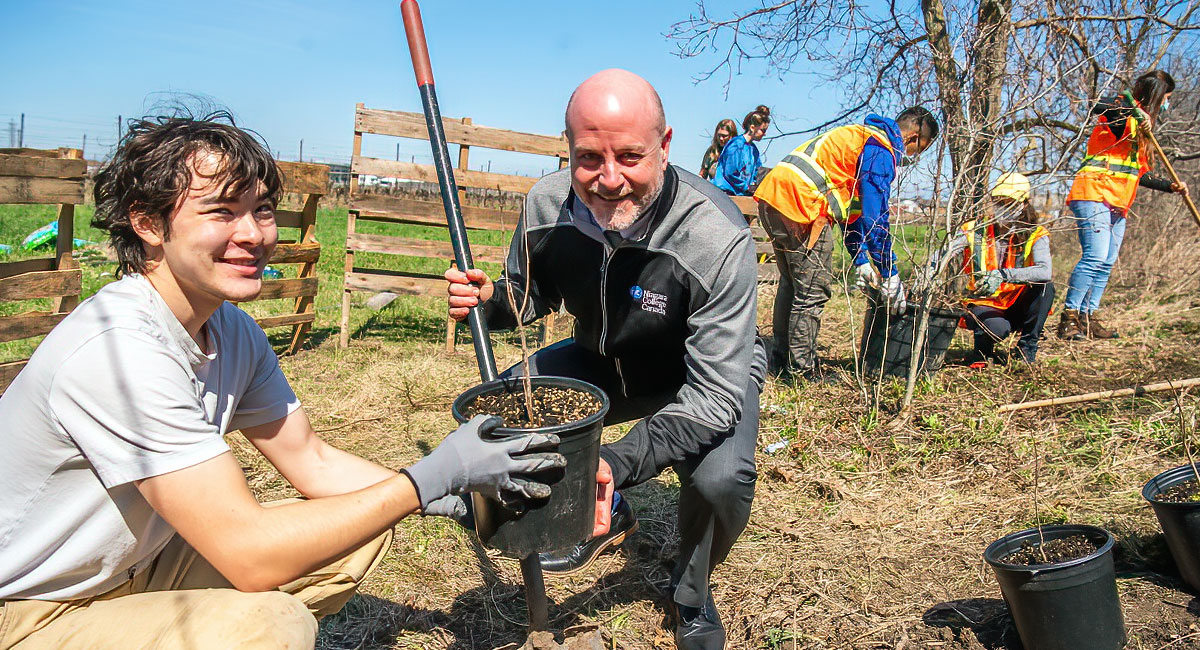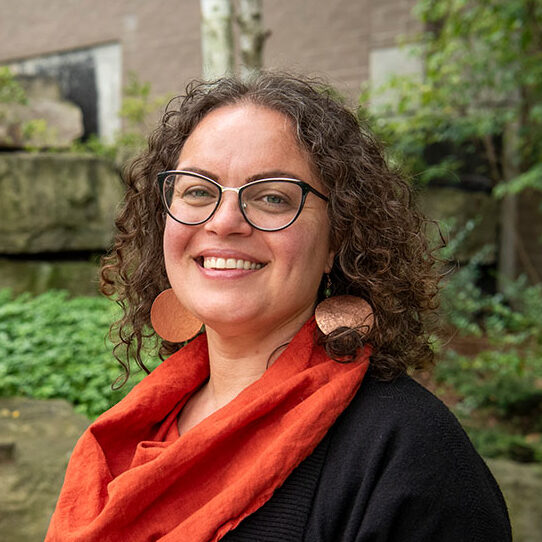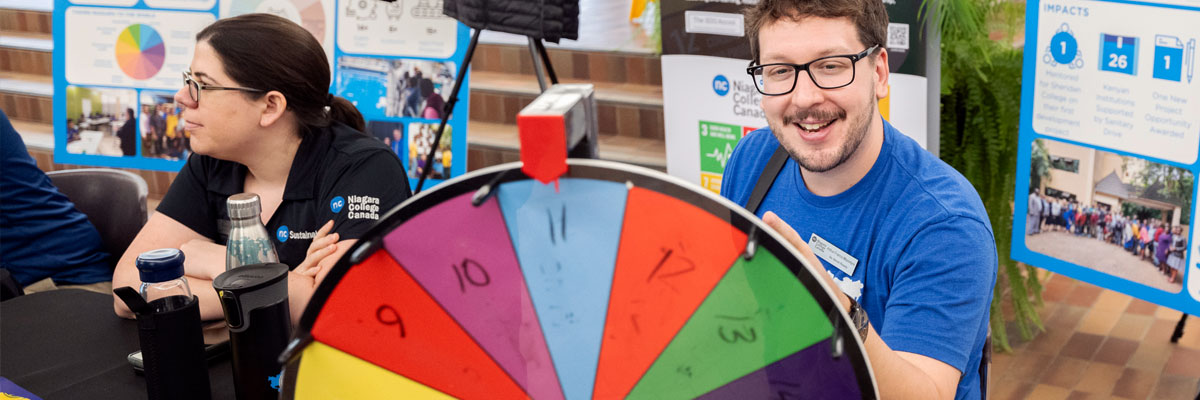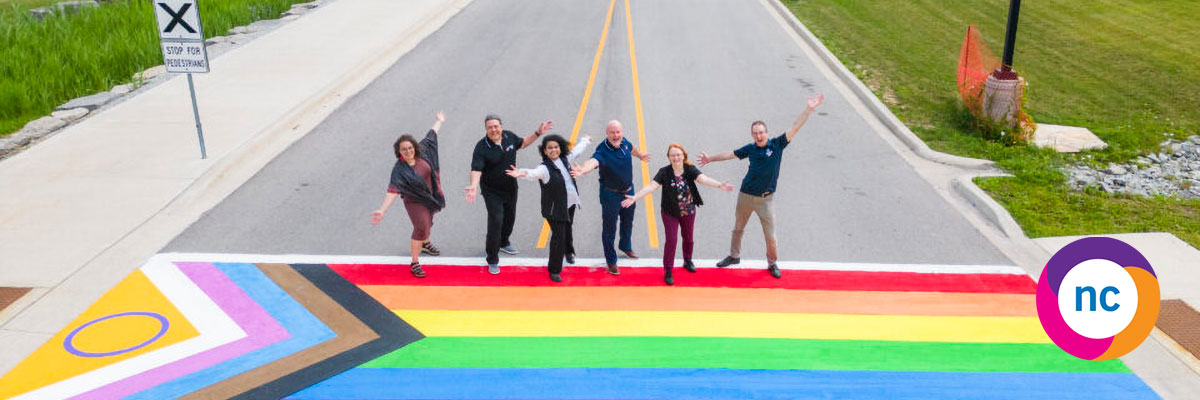Guiding Principles

Please explore our guiding principles below. All principles are of equal value and importance to our Sustainability Plan.

The Sustainability Action Plan is integral to supporting Niagara College in creating a community that is sustainable, healthy, and inclusive. The guiding principles of the plan align with those identified in the college’s Equity, Diversity, and Inclusion Blueprint and emphasize the shared responsibility of our community in creating sustainable and equitable campus environments. This approach ensures that sustainability and EDI initiatives across the college are collaborative and complimentary. With this alignment, the plan acknowledges the intersections of this work and the importance of ensuring college initiatives are sustainable and meet the needs of all members of the NC community.
Indigenous Ways of Knowing, Being and Doing

Indigenous Ways of Knowing, Being, and Doing seeks to inform decision-making while being mindful of the complex cultural and ecological history of Niagara College. It is also acknowledged that traditional practices have a foundation in sustainability principles and work in connection with the land; in every deliberation, consideration is given to the impact of those decisions on the next seven generations with respect to both the natural and built environment. This knowledge system goes beyond historical value and is demonstrated in the language, classification, resource practices, social interactions, and spirituality that is taught and appreciated at the College today.
Indigenous Ways of Knowing, Being, and Doing are closely tied to the land, understanding all living beings are connected, should be cared for by one another and that the land can not be owned or claimed. The current state of the environment and climate change can be linked to humans not caring for the land in the same way as First Nations, Métis, or Inuit. As we focus on sustainable action, consider how Indigenous and diverse community members are impacted by decisions and how your work aligns with Indigenous ways of thinking and doing.
Fostering a Sustainable Culture

All students, staff and community members are an important piece to making progress and achieving this Plan, which will require diverse knowledge including accepted science, subject matter expertise, and Indigenous knowledge, to inform decision making and foster partnerships built on mutual trust, accountability, and a shared sense of purpose. NC campuses are a platform for multidisciplinary, active, and experiential learning—not as an ancillary benefit, but by design, for students in all academic programs. Using campus spaces and infrastructure to showcase new and innovative technology and traditional knowledge to build competencies and increase access to nature, intentionally using our campus as a living lab for students, employees, and the community.
Collective Action

Everyone has a role to play in supporting sustainability at NC, and only through the collective action of all students, employees, and community members and reflecting on our own spheres of influence for positive change, will we be able to accomplish the accelerated actions needed to address global complex sustainability issues, including climate change. This Plan will focus on increasing internal and external collaboration by creating new opportunities and aligning existing opportunities to showcase shared goals, build capacity, and ensure diverse perspectives are reflected.
Net Zero Carbon Emissions

NC understands the net zero goal will be reached through a dynamic multifaceted approach, centering carbon emission reductions through innovation, efficiencies, deep retrofits, and shifting towards renewable energy and self-generation. Flexibility will be a key strategy, as policies and practices continue to rapidly change the regulatory, technology and culture shift on climate action, ensuring sustained investments to transform energy performance of college assets.
The Sustainability Plan will focus on comprehensive planning to establish baselines, benchmarks, and project planning for capital construction and renovations, including a detailed map of what decarbonization at NC will look like for direct (scope 1) and indirect (scope 2 and 3) carbon emissions.
Equity, Diversity and Inclusion

Aligning with the EDI Blueprint, the Sustainability Plan has adopted social inclusion as a guiding principle. We are dedicated to a student-focused, trailblazing, passionate, and welcoming college committed to accessibility, equity, and inclusion, where all members of our diverse community are engaged, valued, and supported. At NC, collaborative, sustainable and accessible EDI work creates trust and belonging to create welcoming and inclusive spaces to learn and work, where everyone feels a sense of belonging and provide platforms to increase participation from, support for, and advancement of members of equity-deserving communities.